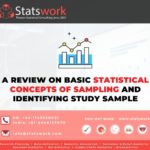Strategies to enhance qualitative and quantitative data collection in pharmaceutical research
In the present situation a quick variations in healthcare release pharmaceutical research is familiarity with significant enlargement and development. Increasing health problems demands endless and complex usage of medicines. This promotes pharmacists plays a key member in prescribing medicines and health care team equivalent to a doctor. Pharmacists sometimes act as advisors to the physicians and nurses. It is necessary to the pharmacists to make contact with patients and other health problems to achieve utmost therapeutic results. The role of pharmacist involvement increases the drug therapy to get finite results that improve quality life of patients. By giving priority to these outcomes pharmaceutical research may involve both qualitative and quantitative data analysis (Hassali, Saleem, Farooqui, & Aljadhey, 2014).
For every research we need a data that would collect from various platforms. Data collection is defined as the “procedure of collecting and quantifying information on interested variables, in a recognized methodical manner that facilitate one to reply queries, designed research questions, hypotheses tests, and calculated results.” Before going to the different data collection techniques and methods, let’s know about the quantitative and quantitative data analysis
Qualitative approaches are useful to describing a situation and can provide imminent involvement with conditions. Data collected from qualitative inquiry is huge. This type of data are usually in the form of textual narrative, descriptions of observations, ideas and or researcher‘s conjunctions etc., In this type of data collection the study objectives are more exploratory. The researcher should explain criteria or purpose of the particular work. There are mainly three approaches exists in qualitative research first one is that communicate the objectives to the respondents, interviewee or data collection services those who are returning to the field. Second one is that dealing with the existing or developed data sets in view of contradictory point. Thirdly whereby the researcher depends on the past literature to exhibit their findings are reliable with his subject knowledge. More over qualitative data analysis consists with by maintaining detailed records of the interviews and observations through documenting the process of analysis in detail Thus, qualitative research depends, particularly for its validity, on the skills, training, insights and capabilities of the researcher at every stage. These days companies and data colleting service are available for any particular cause or information. Many services are maintain such type of data available for the researchers. Most of the cases, qualitative data collection techniques include primary data collection through open-ended surveys and questionnaires, interviews, targeted groups, observation, case studies, and so on.
Quantitative approach involves numerical measurement and relationship between variables. In the field of pharmaceutical research, it is very common by using survey methods. These are may be collecting information directly from the respondent through questionnaire which called as primary data, agencies or companies collected information, it may be online questionnaire also treat as online data. Many data collection services, companies and online services are maintaining data for analysis. Pharmaceutical researcher are get the information from the service centers and companies for their research and analysis purposes. In quantitative methodology data are available in the form of numerical measurement which can more accurate and reliable for descriptive purposes. These are created according to the research goals, and get solutions easily transformable into numeric’s, charts, graphs and tables.
In pharmaceutical research either of the cases i.e., qualitative or quantitative data can be obtained through survey. This is a broad range of application it may be from written, oral and electronic procedure. In written procedure questionnaire should be developed by arranging set of questions related to the objective of the study. At present digitalized world can be generated more accessible ways to make the data through this we can get any kind of information from lakhs of people. Well-planed online data collection services permit you to collect quantitative and qualitative data through quick polls and surveys, from the same audience, in a unified way. More particularly some companies are designed for this purposes. The researcher can collect the data or survey results in short time ensuring a huge response rate. We can get information on sensitive topics also.
Pharmaceutical researches are more strengthening by adopting quantitative and qualitative techniques. By implementing both methods in research work it would be validate and expansion for data collected. Quantitative techniques lead larger data where as qualitative techniques support complementary analysis.
Whatever procedure or methodology is applied in the data collection it involved large amount of data. Thus, once quantitative survey tools have been developed the data collection, processing and analysis are the further process. In view of respondent qualitative survey remain sensitive and be prepared to consider new subject and ask questions throughout data collection and analysis. In quantitative analysis non-measurable factors can be excluded and neglected which may be significant. Qualitative methodology its self is an explanatory analysis in nature. It brings all possible causes and effects of the particular study.
Every method have its own strengths and weaknesses. Combining both the procedures in pharmaceutical research will create more effective and accurate outcomes depending up on the research study. If we strengthening these techniques in data collection that will give exact results and can be applied and useful to the further research. Developed this mixed methodologies in the survey data collection services and online companies should accountable for the cost, quality and results of pharmaceutical care provided to patients. Data collection services and organization further noted that they must be equipped with specific knowledge, attitudes, skills and behaviors in order to practice effectively in the society.
It’s all depends on the surveys particularly on the structure of the survey questions effective in data collecting for both types. Finally pharmaceutical research cannot decisive strategies without facts to support them. If there is no relevant or accurate data the researcher cannot draw useful conclusions or research finding. For good and appropriate decisions it’s advised to use updated procedure for data collection. More polished and suitable in the pharmaceutical research related strategies are developed in collect data through experts.
References
- Hassali, M. A., Saleem, F., Farooqui, M., & Aljadhey, H. (2014). Strengthening pharmacy practice research: the need for combining both qualitative and quantitative methodology. J Pharm Care Health Syst, 1(3), 112. Retrieved from https://www.researchgate.net/profile/Mohamed_Hassali2/publication/309452988_Strengthening_Pharmacy_Practice_Research_The_Need_for_Combining_both_Qualitative_and_Quantitative_Methodology/links/581a2f9708ae30a2c01c9c8a.pdf
[wce_code id=1]

 Previous Post
Previous Post Next Post
Next Post